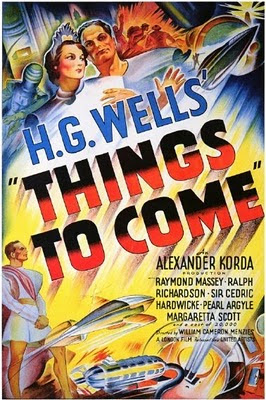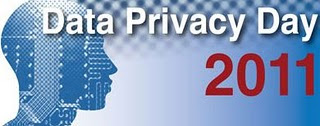
RSA 2011: One Flew Over the Kaku's Nest & Other Ruminations
By Richard Power
This is an excerpt from "RSA 2011: Scott Charney's Bucket List, One Flew Over the Kaku's Nest & Other Ruminations." CyLab Partners can read the full text in the Intelligence Briefing section of the CyLab Partners Portal.]
One Flew Over the Kaku's Next
I have covered the RSA conference for most of its twenty years of existence, writing for one publication or another. This year is the third consecutive year, I have written about it for CyBlog and the CyLab Partners Portal. In 2009 and 2010, my posts reflected the overtone of keynote sessions, that were reaching forward into the future, projecting consciousness ahead and into it, and sending back meaningful impressions. For example, RSA 2010: Lost in the Cloud, & Shrouded in the Fog of War, How Far Into the Cyber Future Can You Peer? Can You See Even Beyond Your Next Step? or RSA 2009: World-Class Cryptographers Muse on Cloud Computing and Mushroom Clouds This year, however, the theme was retro, the hook was Bob and Alice, those little stick figures used to explicate complex issues and proposed solutions. The RSA Lifetime Achievement Award was given Ron Rivest, Adi Shamir and Leonard Adelman, deservedly so, of course, but prompting Adi Shamir to quip "RSA would like to thank RSA, Inc. for giving RSA the RSA award." And the perspective was rear-view, from Coviello's keynote retrospective, to the legendary RSA Cryptographers Panel, which this year was largely wasted on a look back at DES.
RSA 2011's only flight into futuristic rumination came at the end of the day on the second to the last day, in the keynote presentation of theoretical physicist, best-selling author, and popularizer of science, Dr. Michio Kaku, who spoke on the "Next 100 Years."
Kaku has interviewed three hundred of the world's top scientists for BBC, the Discovery Channel and the Science Channel, and the information he gathered is distilled in two of his books, Physics of the Impossible, which had a good run on the New York Times Bestseller List, and talks about "the science behind science fiction," and Physics of the Future, which talks about the next 100 years, and will be released next month.
Before launching into the predictions of those 300 top scientists, Kaku suggested a historical frame, speaking of waves of technological breakthroughs, which led in turn to financial bubbles and subsequent economic crashes.
"What is science? Among other things, science is the engine of prosperity."
"Wealth is restless. It never stays the same. It has to go some place. And where does it go? Into a bubble. And when the bubble pops, you have an economic crisis."
"What is the fourth wave? This is the question. The first wave was steam power, creating the crash of 1850. The second wave was electricity and the automobile, creating the crash of 1929. The third wave was high-tech, creating the crash of 2008 ... What will be the fourth wave? We're not really sure ... computers, biotechnology, artificial intelligence, the Quantum Era, nanotechnology ..."
Here are some excerpts from Kaku's mind-blowing 45 minute presentation:
"With smart contact lens, you will blink and you will go on-line. So maybe ten years, maybe more, we will live in a world where we can identify people's faces, see their biographies, see sub-titles as they speak in Chinese or any other language ... This will revolutionize tourism. If you are a tourist in Rome, you will be able to witness the re-creation of the Roman Empire in your contact lens, as you walk across the ruins ... Artists, architects, prospectors ... the military wants to do this, because this is also x-ray vision, if you are a pilot in a jet plane, and the enemy air plane goes beneath your feet, you are a dead duck, because you cannot see underneath your feet; however, if there is a camera underneath your jet plane, the camera can shoot the image into your contact lens and you could see 360 degrees ... Virtual reality is for children, augmented reality is for professionals, adults, tourists ..."
"Today, your office is structured around your PC, why? The content is more important than the platform. In the future, as you move, the files will follow you in the Cloud, as you go from room to room, and house to office and back again."
"This is the future of your car. Google is already investing millions of dollars in this technology. Google predicts that in eight to nine years, your car will drive itself."
Kaku also spoke of intelligent wall paper and intelligent glass, and intelligent ...
"And what about the future of medicine? ... The word tumor could disappear from our language, when you're toilet becomes intelligent. Your toilet will have DNA chips, the same technology used in Silicon Valley to etch transistors can also be used to etch devices that can zoom in on individual cancer cells. So your toilet will tell you that you have cancer groing in your body. Today, if you have a tumor in your breast it is too late, by the time you can feel a tumor in your breast it is really too late. You have about ten billion cancer cells growing in your breast, surgery is required immediately. In the future, your toilet will tell you there are one hundred cancer cells in a colony, ten years before it forms a tumor."
What could the implications for risk, security and privacy be in even these few glimpses into Kaku's plausible (and near) future?
Going the Wrong Way?
More than twenty men spoke in keynote slots or on keynote panels, yes, all men.
Last year, UN General Secretary Ban Ki-Moon appointed former Chilean President Michelle Bachelet as the first Executive Director of U.N. Women, UN organization dedicated to gender equality and the empowerment of women ("a global champion for women and girls, UN Women was established to accelerate progress on meeting their needs worldwide)."
Champions of civil society throughout the world are promoting the ascendancy of women as a vital element in bringing the profound humanizing changes needed for this era of looming economic, social and environmental crises. How much more so is it needed for as a vital element in the search for a new vision of risk, security and privacy in a world where cyberspace, human psyche and physical reality are inextricable intermeshed?
Perhaps Ms. Bachelet should drop in on Art Coviello and Jim Bizdos?
The challenges and opportunities of 21st Century computing are seemingly limitless, and the vital ways in which they are intricately interwoven with the challenges and opportunities involved in the survival of the species in the 21st Century are likewise seemingly limitless.
New ways of thinking, new modes of feeling, and new models of community and collaboration, all are needed if we are to meet the multitudinous challenges and opportunities arrayed ahead of us.
A good place to start would be to bring the other half of the human race on to the agenda.
The overall RSA 2011 agenda did include an Executive Women’s Forum event one evening.
Dena Haritos-Tsamitis, CyLab Director of Education and Information Networking Institute (INI) played a prominent role.
"Carnegie Mellon CyLab and the Information Networking Institute are pleased to join forces with the Executive Women's Forum Cyber Security School Challenge to engage information security professionals in raising 'cyberawareness' in children in their local school districts and communities. RSA was a great venue to showcase and share Carnegie Mellon's MySecureCyberspace outreach initiatives for this challenge, including a portal for home users, the Carnegie Cadets game for children and tweens, along with its companion web site, the Carnegie Cyber Academy. This is a great opportunity for information security professionals to leverage our educational resources and share their expertise with communities across the country - together we can have a positive influence on children and families. Participants may register for the Challenge at http://challenge.ewf-usa.com."
Perhaps next year, the Executive Womens Forum could lead a keynote session?
Related Posts
RSA 2010: Lost in the Cloud, & Shrouded in the Fog of War, How Far Into the Cyber Future Can You Peer? Can You See Even Beyond Your Next Step?
RSA Conference 2009: Summary of Posts

